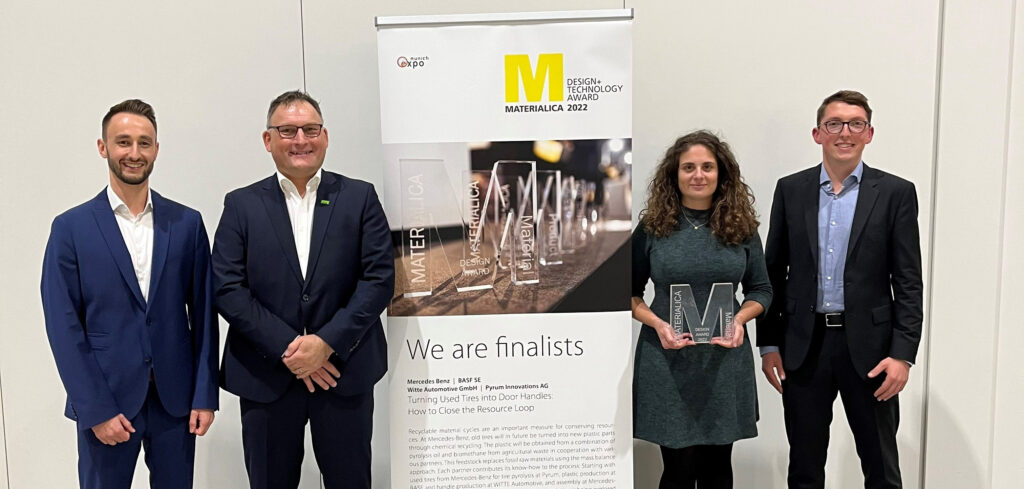A group consisting of BASF, Mercedes-Benz, Pyrum Innovations and WITTE Automotive has successfully closed a material cycle to produce automotive components from mass-balanced plastics.
The partners have replaced fossil raw materials within manufactured plastics with pyrolysis oil from end-of-life tires and biomethane from organic waste. Before the end of 2022, the group will produce a bow door handle from the mass balanced Ultramid material.
To manufacture the Ultramid plastic for the bow door handle – which is set to be used on certain Mercedes-Benz models – BASF used a combination of raw materials in a mass balance approach. These included pyrolysis oil from scrap tires from Pyrum Innovations, food industry residues and agricultural waste. The company’s Ultramid polyamide 6 benefits from 30% glass fiber reinforcement, ensuring its strength for different vehicle components.
“Solutions like these help our customers meet their sustainability goals,” explained Dr Martin Jung, president of performance materials, BASF. “This is our Go!Create approach: we invite all our customers and partners to join us in shaping the path toward a circular economy with plastics. With this bow door handle for Mercedes-Benz, we have shown this in an exemplary way.”
An independent certification – which follows the REDcert2 scheme – verifies the quantities of pyrolysis oil and biomethane required to replace fossil raw materials for the end product. The certified raw materials are then placed into BASF’s production network, before being mathematically assigned to the plastics through the mass-balance approach and then delivered to the BASF customer WITTE Automotive. The subsequent production of the bow door handles at the automotive supplier is audited externally in the same way based on the REDcert2 standard.



